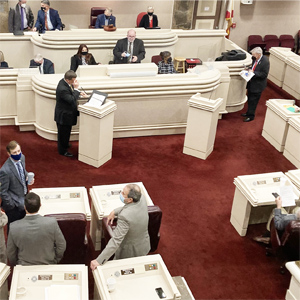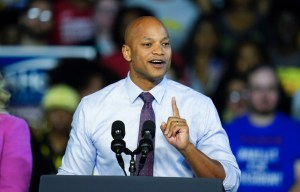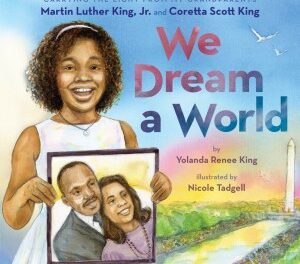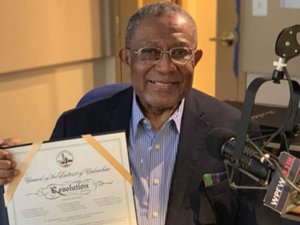By Mike Cason
Two distinct lottery proposals from Republicans await Alabama lawmakers when they return from spring break next week.
Rep. Chip Brown of Mobile County introduced his plan last week and it won fast-track committee approval two days later. It calls for a vote on the November ballot for a lottery. It would be a traditional lottery with tickets sold at licensed retailers for multi-state games like Powerball and Mega Millions, instant games, and others approved by the commission.
The other proposal, by Sen. Greg Albritton of Atmore, calls for a lottery, five new casinos, two satellite casinos, sports betting, and statewide regulation of gambling. There would be a total of 10 casinos counting three electronic bingo casinos now operated by the Poarch Band of Creek Indians in Atmore, Wetumpka, and Montgomery, which could offer the full range of casino games. Electronic bingo halls now operating in some counties would be closed. Albritton’s plan would also go on the ballot for voters in November if it clears the Legislature.
Albritton’s bill also won quick committee approval but has not come up for a vote in the Senate.
Both plans face obstacles with just seven meeting days remaining in the 30-day session. They would need approval by three-fifths of senators and representatives to get to the ballot for voters.
In their final days, Legislators must also complete work on the state’s education and General Fund budgets, which are at record levels this year, partly because of the flow of billions in federal COVID-19 relief money to Alabama’s economy over the last two years.
Two of the most controversial bills still in play have passed one chamber. One would make it a felony for doctors to provide puberty-blocking medications, hormones, and surgeries to transgender minors to help them transition.
The other would ban public schools from teaching “divisive concepts” concerning race, religion and sex.
Both bills have strong backing from most Republicans and opposition from most of the Democratic minority.
The session resumes on March 29.
When lawmakers adjourned last week to begin the spring break, House Speaker Mac McCutcheon, R-Monrovia, said he hoped they would use some of the time to study Brown’s lottery bill, talk to people in their districts, and be ready for a head count when they return.
McCutcheon said he wants some assurances that Brown has enough votes to pass the measure before it comes to the House floor.
“What we want members to do is to look at the piece of legislation that was passed out of committee, talk to their districts, talk with members, and let’s see exactly what the feel of the caucuses are when we come back and see how many votes are there to see if it’s something that we can move,” McCutcheon said. “Because with just a couple of weeks left, we’re in crunch time here.”
Forty-five states have lotteries, including the four that border Alabama. Alabama voters have not had their say on a lottery since rejecting Gov. Don Siegelman’s plan in 1999.
A fiscal note attached to Brown’s bill estimates that a lottery would generate $198 million to $285 million in net revenue annually, after prizes and expenses are paid. Brown’s plan calls for applying the money to scholarships to help students attend four-year and two-year colleges, a student loan repayment program, bonuses for retired education employees, and agricultural education programs for high school students.
McCutcheon said he believes a lottery-only bill has a better chance in the House than one that includes casinos. The speaker said he believes representatives hear more from the people in their districts about a lottery than about casinos.
But the outlook is different in the Senate. Last year, Sen. Jim McClendon, R-Springville, proposed a lottery-only bill but could not round up enough votes. The Senate passed McClendon’s lottery bill last year after adding casinos, sports betting, and a state gambling commission, a proposal similar to the one Albritton has this year. It died in the House.
Albritton said he believes a lottery-only bill would fail again this year in the Senate. For Albritton, the problem with a lottery-only bill is that it leaves other gambling, like the electronic bingo halls, outside of state regulations, as they effectively are now.
Many of those bingo facilities operate under constitutional amendments for bingo approved by voters in their counties. Although the state Supreme Court has ruled electronic bingo is illegal, efforts to enforce that ruling have not worked.
“A lottery is the greatest gaming expansion that Alabama could do,” Albritton said. “That would put gaming at every street corner, every 7-11, every kiosk that you come to, almost. And it would provide the availability to everybody at any time.
“While everyone wants a lottery, I’m not sure they understand the expansion that would take place in that regard. The second (point) is a lottery does nothing to control the casinos and the expansions that’s occurring there.”
For example, a large new electronic bingo hall is scheduled to open soon in Greene County, which operates the game under a local constitutional amendment.
Advocates for the bingo operations say they provide funding for public services and jobs in counties that have limited economic resources.
Although the Senate and House appear to be on different tracks, Albritton sees potential for a compromise.
“We can get through this break here, come out on Tuesday, in 10 days, and hopefully will be able to have a consensus on how we can proceed,” Albritton said. “We only have seven legislative days left. And we’ve got two packages in House and Senate. Surely we can hammer those two things together if we need to find a path to a solution.”
The bill to ban transgender medical therapies for minors has been one of the most controversial lawmakers have considered each of the last three years. Advocates for the legislation say it would protect minors, people under 19, from medical decisions they might regret later.
Opponents of the bill, including families with transgender children and teens, say the bill would take away medical care that is beneficial and that comes only after careful evaluations by teams of experts. The Alabama Chapter of the American Academy of Pediatrics opposes the bill.
The legislation has Republican sponsors — Sen. Shay Shelnutt of Trussville and Rep. Wes Allen of Troy — and has generally had Republican support and opposition from Democrats. Shelnutt’s bill has passed the Senate and won approval in a House committee on March 2. But Republican leaders in the House have not placed it on the calendar for a floor vote.
McCutcheon said he was uncertain of the bill’s chances this year.
“That’s another one of those bills to where this late in the session we need to count votes,” McCutcheon said. “I’ve just told the sponsor, ‘Let’s see how many votes we’ve got.’ The last thing you want to try to have happen when you get into these last few days is put bills on the floor where you got a lot of debate and you run into a controversy.”
The Office for Civil Rights for the U.S. Department of Health and Human Services issued a notice March 3 that it will work to ensure that transgender youth and their families have access to medical care that faces challenges in some states, including Alabama.
Last week, the House passed a bill to prohibit public schools from teaching “divisive concepts” on race religion and sex. The ban also applies to state agencies, such as in training programs.
The bill defines nine prohibited divisive concepts, such as “That fault, blame, or bias should be assigned to a race, sex, or religion, or to members of a race, sex, or religion, solely on the basis of their race, sex, or religion.”
Democrats opposed the bill in the House and said it could stifle teaching about difficult lessons from history. The Republican sponsor, Rep. Ed Oliver of Dadeville, said the purpose was to prevent children from being taught to hate each other or hate America. He did not name schools where that was happening, but said his bill is intended to be preventive.
Oliver accepted an amendment by Rep. Barbara Boyd, D-Anniston, that said, “Nothing in this act shall be construed to prohibit the teaching of topics or historical events in a historically accurate context.”
The bill moves to the Senate, where the sponsor is Sen. Will Barfoot, R-Montgomery.
Other states are passing legislation to limit classroom discussions about racism, part of a wave of Republican-led concerns about so-called critical race theory.











